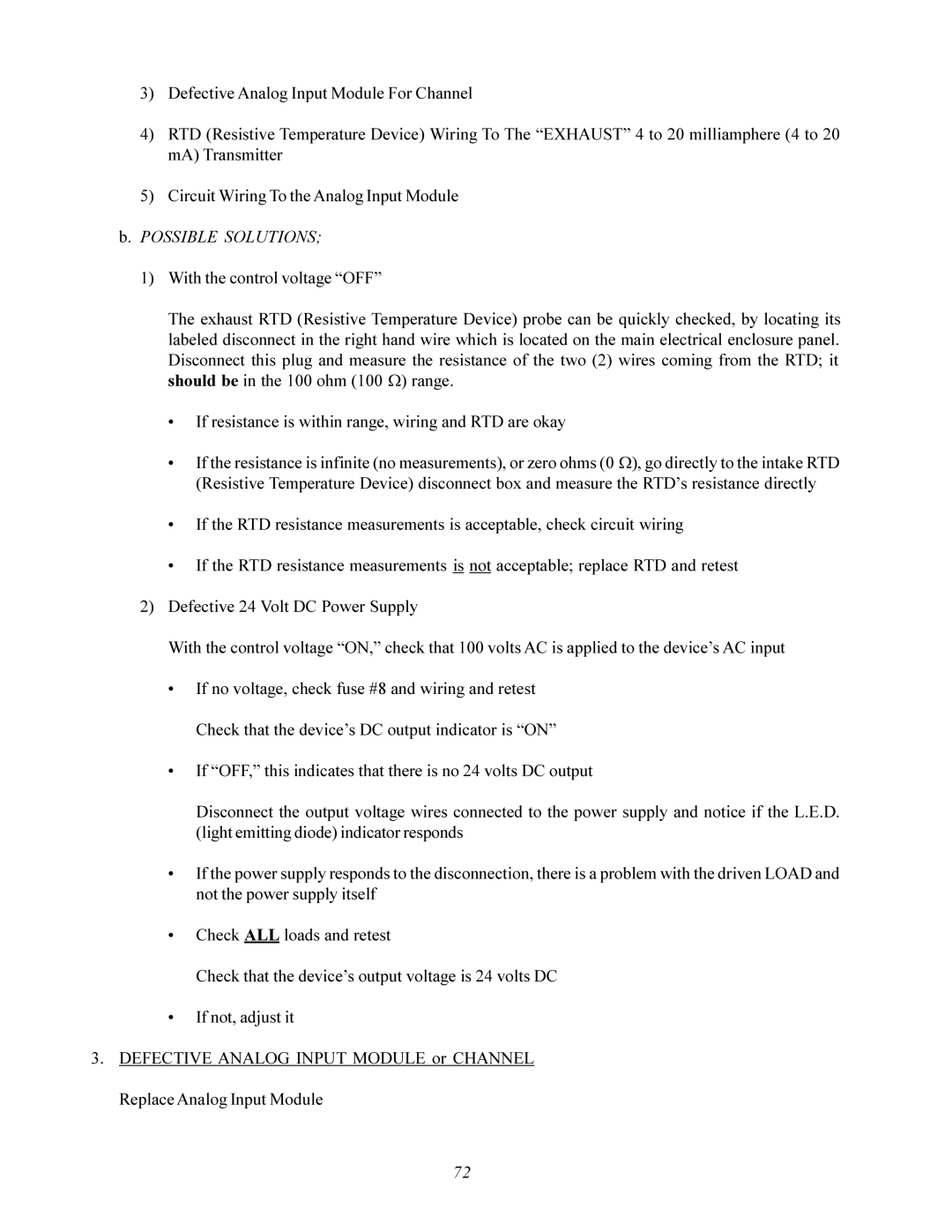3)Defective Analog Input Module For Channel
4)RTD (Resistive Temperature Device) Wiring To The “EXHAUST” 4 to 20 milliamphere (4 to 20 mA) Transmitter
5)Circuit Wiring To the Analog Input Module
b.POSSIBLE SOLUTIONS;
1)With the control voltage “OFF”
The exhaust RTD (Resistive Temperature Device) probe can be quickly checked, by locating its labeled disconnect in the right hand wire which is located on the main electrical enclosure panel.
Disconnect this plug and measure the resistance of the two (2) wires coming from the RTD; it should be in the 100 ohm (100 W) range.
•If resistance is within range, wiring and RTD are okay
•If the resistance is infinite (no measurements), or zero ohms (0 W), go directly to the intake RTD (Resistive Temperature Device) disconnect box and measure the RTD’s resistance directly
•If the RTD resistance measurements is acceptable, check circuit wiring
•If the RTD resistance measurements is not acceptable; replace RTD and retest
2)Defective 24 Volt DC Power Supply
With the control voltage “ON,” check that 100 volts AC is applied to the device’s AC input
•If no voltage, check fuse #8 and wiring and retest Check that the device’s DC output indicator is “ON”
•If “OFF,” this indicates that there is no 24 volts DC output
Disconnect the output voltage wires connected to the power supply and notice if the L.E.D. (light emitting diode) indicator responds
•If the power supply responds to the disconnection, there is a problem with the driven LOAD and not the power supply itself
•Check ALL loads and retest
Check that the device’s output voltage is 24 volts DC
•If not, adjust it
3.DEFECTIVE ANALOG INPUT MODULE or CHANNEL Replace Analog Input Module
72
